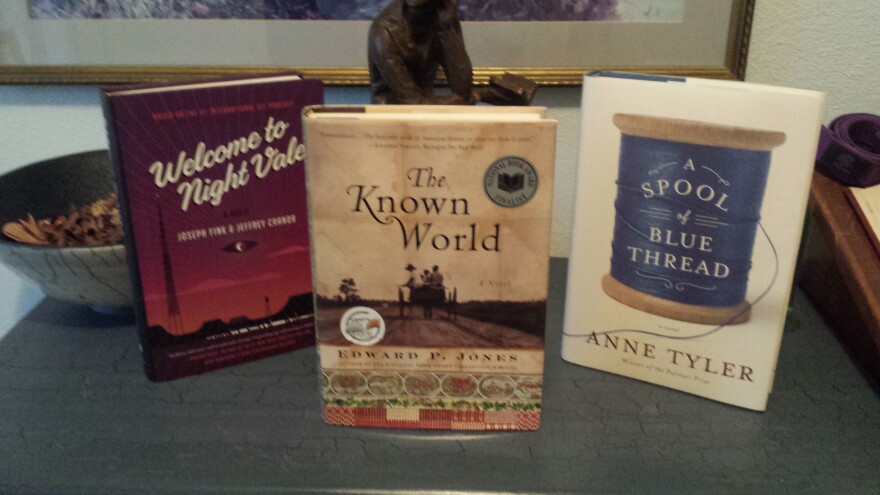Beautifully written tale of slavery in Pre-Civil War Virginia.
I’m Jim McKeown, welcome to Likely Stories, a weekly review of fiction, non-fiction, poetry, and biographies.
According to the brief bio in my copy of The Known World by Edward P. Jones, he won the prestigious PEN/Hemingway Award and was a finalist for the National Book Award for his debut collection of short stories, Lost in the City. Jones won the 2004 Pulitzer Prize and the National Book Critics Circle Award, and was a finalist for the National Book Award for Known World. He resides in Washington, D.C., and this is his first novel. I am profoundly sorry this beautifully written work escaped my notice.
This poignant tale of a slave-owning family in Virginia takes place in the decades before the Civil War. The head of the family was Augustus, who was a skilled carpenter; he and his wife Mildred had a son Henry. Augustus’ owner allowed him to keep a portion of his wages, and he saved enough to buy his freedom, that of his wife, and later, Henry. Caldonia Townsend was Henry’s wife.
Jones describes the day Henry died. “A few women had cried, remembering the way Henry smiled or how he would join them in singing or thinking that the death of anyone, good or bad, master or not, cut down one more tree in the life of the forest that shielded them from their own death; but most said or did nothing. Their world had changed but they could not yet understand how. A black man had owned them, a strange thing for many in that world, and now he was dead, maybe a white man would buy them, which was not as strange. No matter what, though, the sun would come up on them tomorrow, followed by the moon, then dogs would chase their own tails and the sky would remain just out of reach” (60-61). A must read.
I had heard of the complicity of rival African tribes capturing enemies and selling them to slave traders, and I dismissed stories of African-Americans owning slaves. However, Jones’ meticulously researched novel reveals much of the details of slavery at that time.
Other characters included William and Ethel Robbins, white slave holders of 113 people, who owned Henry and his family. Then we have the suspicious cousins from North Carolina, who railed against the freedoms some of the slaves enjoyed in the fictional Manchester County, Virginia. Of course, the local white sheriff, slave hunters and speculators, who would buy blacks with false assurances no harm would come to them, fill out the list of characters.
The insidious slave trade was maintained by wealthy people who ruled their “property” with a whip in one hand, a Bible in the other, and a black woman in their bed. The more I learn of this shameful period in American history the more dispirited I become that we can survive as an intelligent, kind, and loving species considering the attitude of some individuals today. What must life have been like for these poor, abused, and wretched people?
Even readers who might know a about the history of the ante-bellum south should read this novel. I defy anyone to have a heart so stony he or she cannot shed even a single tear. 5 stars
Likely Stories is a production of KWBU. I’m Jim McKeown. You can read my book blog at RabbitReader.blogspot.com. Join me again next time for Likely Stories.


